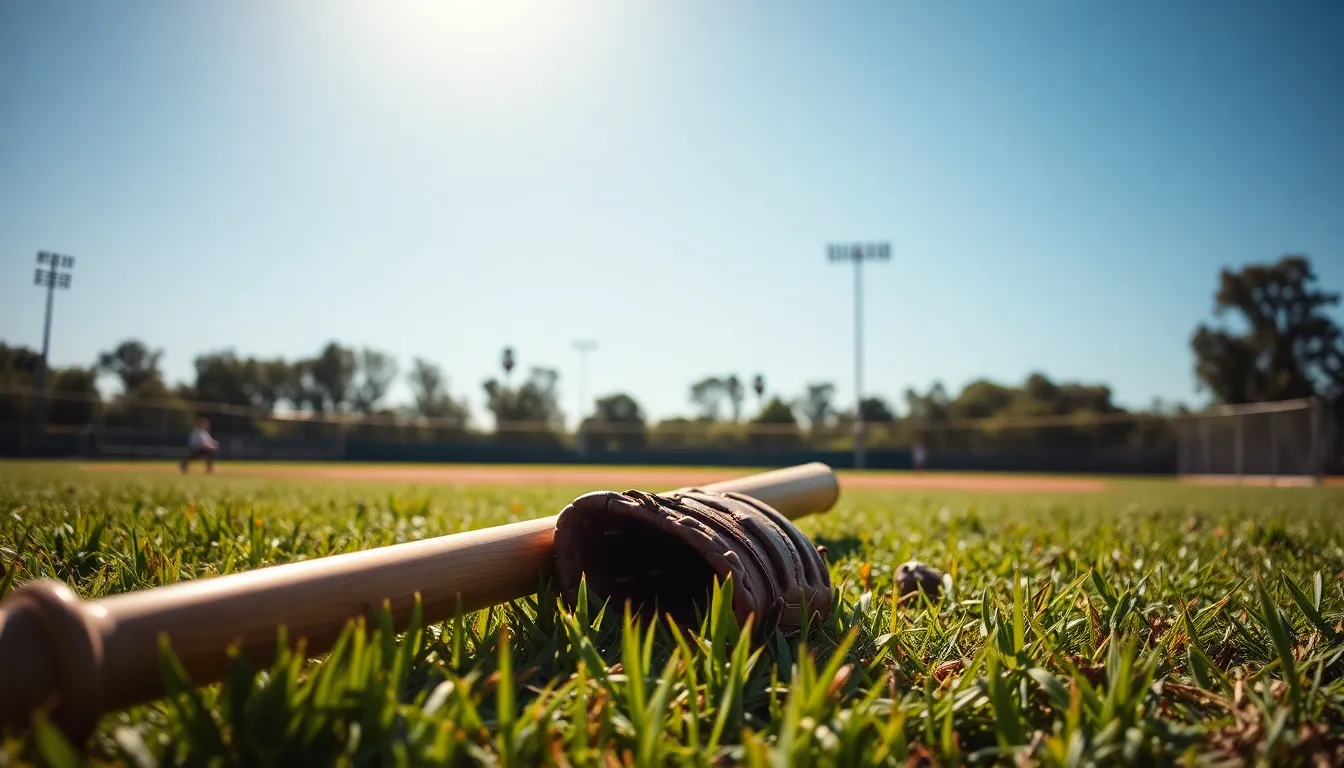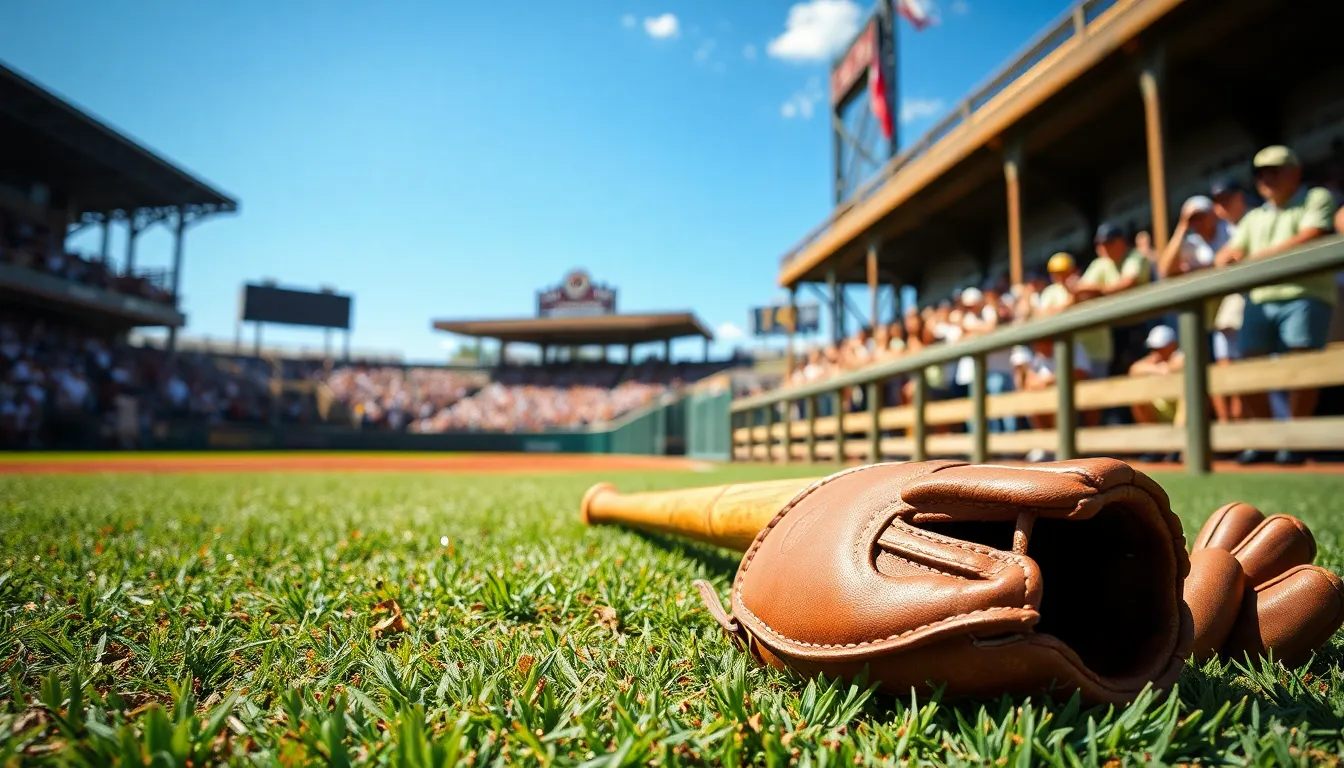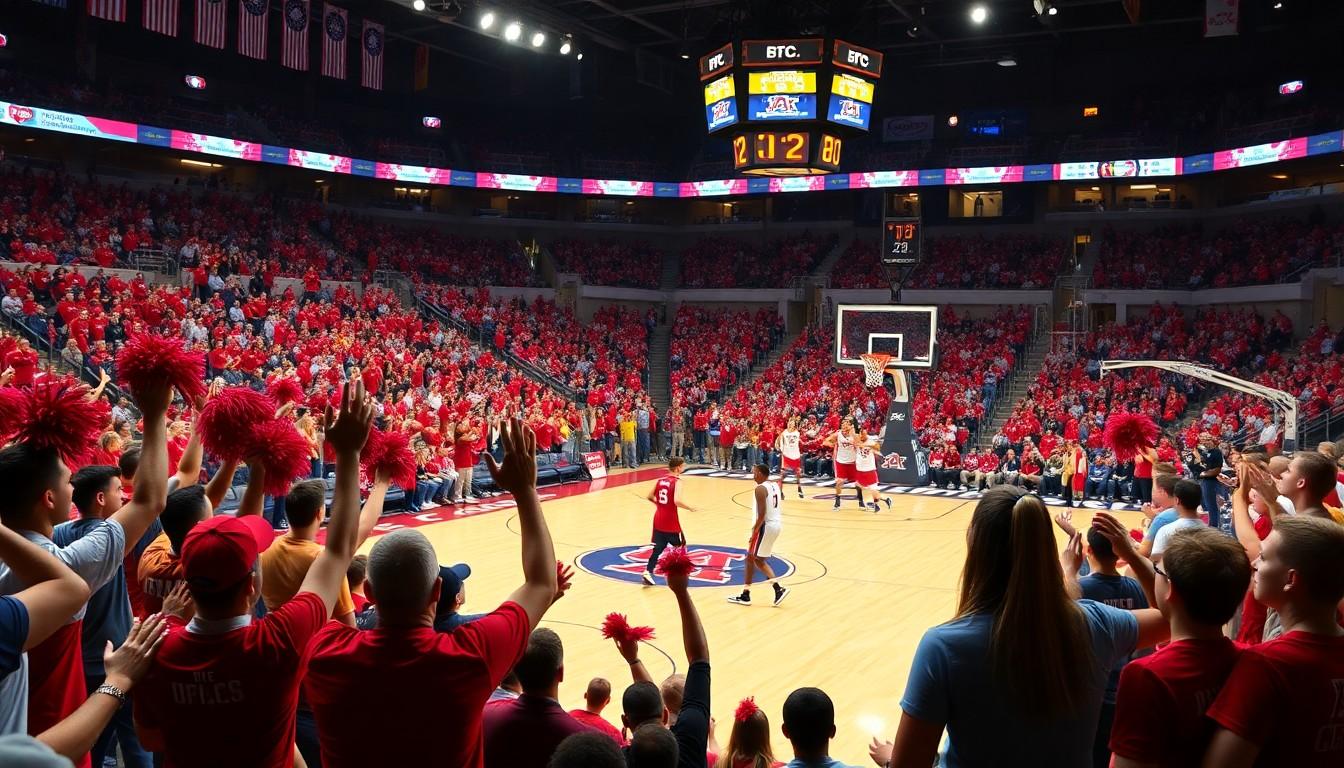Baseball isn’t just a game; it’s a language all its own. From the crack of the bat to the cheers of the crowd, every moment is filled with unique terms that can leave newcomers scratching their heads. Whether it’s a “home run” or a “bunt,” understanding baseball vocabulary can turn a casual viewer into a die-hard fan faster than a fastball whizzing by.
Table of Contents
ToggleImportance Of Baseball Vocabulary
Understanding baseball vocabulary significantly enhances the spectator experience. Fans who grasp terminology, such as “strike zone” and “double play,” connect more deeply with the game. This knowledge allows them to appreciate strategies and the nuances involved in gameplay. Recognizing phrases like “grand slam” and “designated hitter” also sparks conversations among enthusiasts, fostering a sense of community.
Improved vocabulary knowledge leads to greater engagement during games. When individuals comprehend the lingo, they follow announcers more easily. Listeners who can decode play-by-play commentary enjoy a richer and more informative experience.
Baseball vocabulary serves as a bridge from casual observation to passionate commitment. New fans who familiarize themselves with terms experience excitement during pivotal moments. The thrill of understanding why a “walk-off” hit is significant cannot be overstated.
Proper terminology aids in analyzing player performance and team dynamics. Recognizing plays like “check swing” or “bunt defense” enables an appreciation for tactical decisions made by players and coaches. Fans develop a more profound respect for the sport’s complexity.
Moreover, mastering baseball vocabulary encourages involvement in discussions, whether at the ballpark or online forums. Fans feel empowered to share insights, enhancing their enjoyment and the experience of those around them. Conversations become more dynamic and inclusive when language barriers fade.
Acquiring baseball vocabulary ultimately transforms spectators into informed supporters. Educated fans foster a vibrant culture within the baseball community. Engagement grows when individuals embrace the sport’s rich language, solidifying their bond with baseball.
Essential Baseball Terms

Baseball features a distinct vocabulary that enhances understanding and enjoyment. Familiarizing oneself with terminology helps fans grasp the nuances of the game.
Equipment Terminology
Baseball encompasses specific terms related to equipment. A bat is crucial for hitting the ball. Gloves aid players in catching and fielding. Bases serve as pivotal points on the diamond. Helmets protect batters from pitches. Cleats promote traction on the field. These items play essential roles in gameplay.
Player Positions
Understanding player positions deepens appreciation for the game’s strategy. The pitcher is central to each play, initiating throws. Catchers receive pitches and coordinate defensive efforts. Infielders, including first basemen, second basemen, shortstops, and third basemen, manage ground balls and cover bases. Outfielders track fly balls, protecting the outer part of the field. Each position has unique responsibilities contributing to team dynamics.
Game Play Vocabulary
Familiarity with game play vocabulary is vital for engagement. A home run occurs when a batter hits the ball over the outfield fence. Strikeouts happen when a pitcher throws three strikes, dismissing a batter. Walks provide a player a chance to advance to first base without swinging. Double plays, where two outs occur in rapid succession, showcase defensive prowess. These terms shape the ongoing action and strategies within a game.
Common Slang And Phrases
Baseball possesses a rich lexicon of slang and phrases that enhance communication among players and fans. Understanding these unique expressions deepens one’s connection to the game.
On-Field Expressions
Players frequently use specific phrases during gameplay. “Behind the bag” refers to positioning behind a base during a play. “Hit the cut-off man” directs outfielders to throw to an infielder instead of directly to the base. The term “in the hole” denotes the next batter waiting to take a turn at the plate. Another expression, “around the horn,” describes a double play involving all infielders. Familiarity with these terms helps fans appreciate strategic decisions and player interactions during the game.
Fans’ Lingo
Fans create their own slang to express support and engage with the sport. “Walk-off” signifies a game-ending hit that secures victory for the home team. “Dinger” refers to a home run, often celebrated with excitement. When fans shout “play ball,” they signal the start of the game. The phrase “bullpen” represents the area where relief pitchers warm up. Knowing this lingo enhances the overall enjoyment, allowing fans to fully immerse in the atmosphere of live games.
Learning Baseball Vocabulary
Grasping baseball vocabulary enhances understanding of the game. Terms like “home run” and “strike zone” serve as cornerstones in conversations among fans. Each word provides depth, improving the appreciation of strategies and plays during games.
Examining equipment vocabulary, critical items such as bats, gloves, and helmets come into play. Familiarity with these terms allows fans to recognize essential gear affecting performance. Recognizing player positions, including pitchers, catchers, infielders, and outfielders, defines team dynamics and strategies. Each role contributes uniquely to the overall gameplay and understanding this fosters a deeper connection to the sport.
Focusing on key gameplay phrases enriches the viewing experience. Words like “strikeout” and “double play” capture the essence of game moments. Recognizing slang terms enhances communication, both on and off the field. Expressions such as “walk-off” and “dinger” illustrate the excitement felt during critical game situations.
Joining the conversation about baseball becomes effortless with a strong vocabulary foundation. It equips fans to discuss player stats and performances more intelligently. Engaging fully during commentary provides a clearer understanding of the game’s nuances.
Mastering baseball terminology not only boosts knowledge but also strengthens bonds between fans. The culture surrounding baseball thrives on shared language and experience. Each term learned nurtures a sense of belonging in the vibrant baseball community.
Mastering baseball vocabulary opens the door to a richer understanding of the game. It transforms casual viewers into informed fans who can appreciate the nuances of play and strategy. With a solid grasp of terms and phrases, individuals can engage more meaningfully with fellow enthusiasts and participate in discussions about player performance and team dynamics.
As fans learn to navigate the unique language of baseball, they foster connections not only to the sport but also within the community. This shared knowledge enhances game-day experiences and cultivates a sense of belonging among supporters. Embracing the vocabulary of baseball is not just about understanding the game; it’s about becoming part of a vibrant culture that celebrates teamwork, competition, and passion.




